
Scams are on the rise
Financial scams aren’t new, by any means, but they have recently accelerated in frequency, thanks in part to the COVID-19 pandemic. According to the Federal Trade Commission (FTC), there was a whopping 70% increase in reports of fraud from 2020 to 2021. Imposter scams sit at the top of the list of types of scams perpetrated, and many imposter scams are also bank scams—essentially, any fraud that affects your bank account.
Why the increase? “[During the pandemic] many people spent a lot more time in front of the computer and many bought, sold, donated or otherwise engaged in transactions that resulted in the perpetration of fraud,” explains Salvatore LaScala, head of global financial crimes, fraud, investigations and compliance at Guidehouse, a global consultancy firm.
Even though no one is immune to bank scams and wire fraud, financial institutions, online businesses and retailers are ramping up their fraud prevention and detection services to protect your real and digital wallet. Law enforcement is also enhancing its tools every day to catch and stop online scams, Zelle scams and more. You can help, too, by simply knowing the latest bank scams, including the red flags for phishing, and how to avoid them. Check out these tips.
Get Reader’s Digest‘s Read Up newsletter for more tech, cleaning, travel and fun facts all week long.
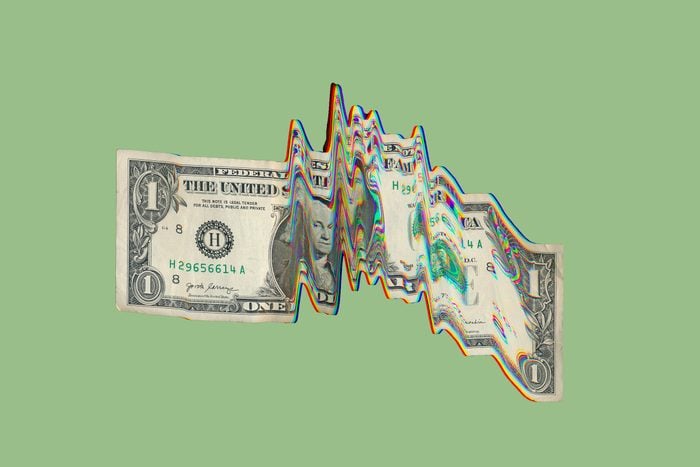
Overpayment scam
Overpayment scams are exactly what they sound like: The scammer presents you with a personal or business check for more money than what they owe you for goods or services.
For example, the fraudster could give you a $4,500 check instead of the $2,000 you were expecting. But this isn’t your lucky day; it’s part of the scam. Next, the scammer asks you to wire or make an electronic transfer through Zelle or another ACH transfer service for the $2,500 difference.
Next thing you know, the initial check they gave you will bounce, and they may have already received the money wire or Cash App payment for the difference before you (or your bank) realizes their check is no good. They get your $2,500, and you potentially get fees for depositing a check that bounced and your bank account closed for trying to cash a fraudulent check.
How to avoid it
- Avoid checks and only take payments through payment apps like PayPal, or just ask for cash.
- If you do accept a check, have your bank call the check writer’s bank to confirm the funds are available in their account.
- Never accept a payment that is more than what a person owes you unless you have written proof that the overpayment was some type of gratuity.
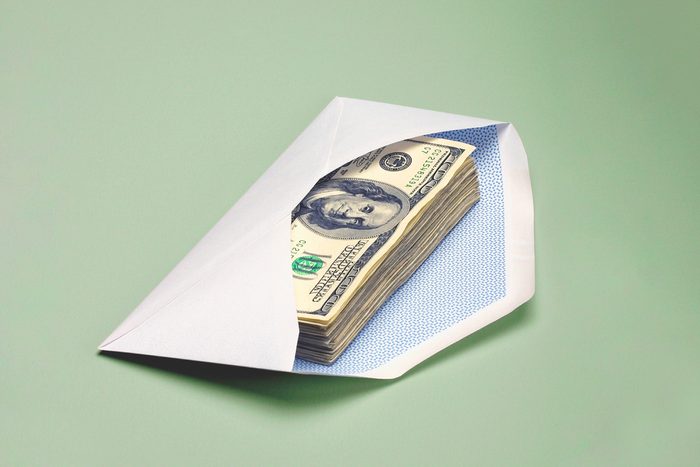
Unsolicited check fraud scam
Receiving a check for no reason seems like a dream. Money for nothing is great, right? Hold on. Scam artists use this type of bank scam to trap us.
How does it work? You get a check in the mail you weren’t expecting from someone you don’t know. They hope you don’t notice the fine print under the signature line that reads something like this real example found by the Georgia Consumer Protection Division:
“SIMPLY ENDORSE AND CASH OR DEPOSIT THIS CHECK AT ANY BANK TO AUTOMATICALLY ENROLL IN XXXXXX starting with thirty days free. Unless you call to cancel during this trial, XXXXXX will notify XXXXXXX, the issuer of your XXXXXX credit card, to bill the $9.99 monthly membership fee, or then-current fee, to your credit card each month, without your having to do anything further. You can cancel at any time after the trial period for a full refund of your current month’s paid membership fee. The $2.50 check is yours to keep.”
Once the check is deposited, the fraudster will start charging your account. Often it’s difficult or near impossible to cancel the charges.
How to avoid it
- Always look to see if there is any fine print anywhere on checks you receive.
- Take the check to your bank to find out if they can verify information on the sender.
- Before cashing any check, Google the sender’s name with the word “scam” to see if any others have been targeted.
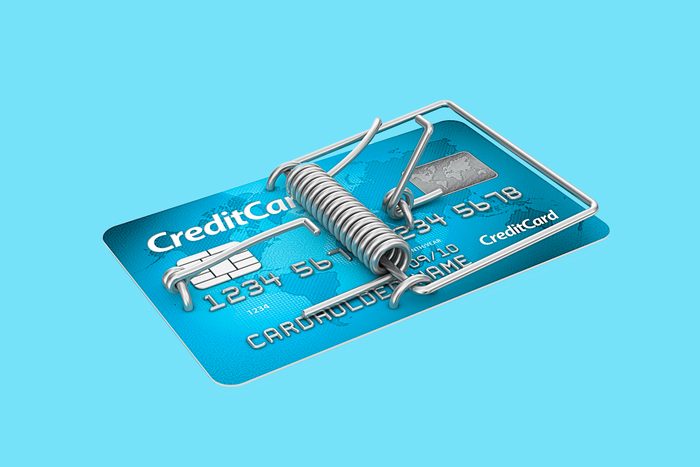
Automatic withdrawals scam
Beware of free trials that require you to use a credit or debit card to sign up. Free products where you just pay for shipping are a way companies can trick you into signing up for this type of bank scam. They may include fine print to the effect that by getting the free product you are signing up for a subscription.
Once scammy companies have your card information, they will make it as hard as possible for you to cancel the free trial. Their website may direct you to email or call the customer service department to cancel, but somehow, you never get through to a real person.
How to avoid it
- Only sign up for free trials from reputable companies.
- Remember, nothing’s ever really free. Companies have underlying reasons for giving out freebies, even when it isn’t to scam you. (They may be collecting your personal information to sell to a data collector, for example.)
- Remember to always read the fine print before you give companies your credit or debit card information.

Loan scam
This type of bank scam often preys on those who are desperate for quick cash. You might see an online ad for a company that claims it can help you secure a government, bank or other type of loan. If you reach out, these scammers may ask for a fee to help you and then provide less than helpful advice, charge you an application fee or ask for personal information they can use to get access to your bank account. Others have a 900 number that, if you call, you’ll end up paying for literally. You’ll be charged, sometimes upward of hundreds of dollars, for the call on your next phone bill.
How to avoid it
- Remember, there is no magic way to get approved for loans. Everything these people will tell you can be easily looked up in books or online.
- Even if the company looks legit, never pay an application fee for a loan; loan application fees are illegal.
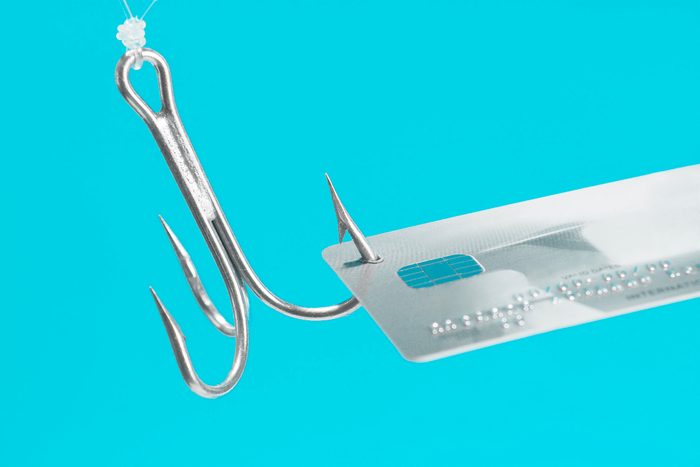
Phishing email and text scam
In a practice known as phishing, scammers send you an email, text message or direct message on social media that at first glance looks like it’s from your bank, credit card issuer or other trusted company. Some may even have elaborate websites that look just like the site of the company they’re impersonating. They’ll encourage you to provide information or click a link that will lead to their scam site, where you’re asked for your personal financial information, such as your social security number or bank account information and passwords. Scammers then use what they gather to take out credit cards in your name and gain access to your bank accounts.
“These fraudulent phishing emails and texts are very good at mimicking your local bank, broker-dealer, retailer or other typically large enterprises,” says LaScala. “This ability to mimic these trusted websites often tricks even the most internet savvy to let down their guard and give up passwords and social security numbers.”
How to avoid it
- Never click on a link in an email, text or direct message. Always go to a company’s site directly.
- Don’t share any information through text, email or direct message.
- Always contact a business’s customer service to verify any correspondence.
- Remember, reputable companies will never ask you for your social security number or bank account information.
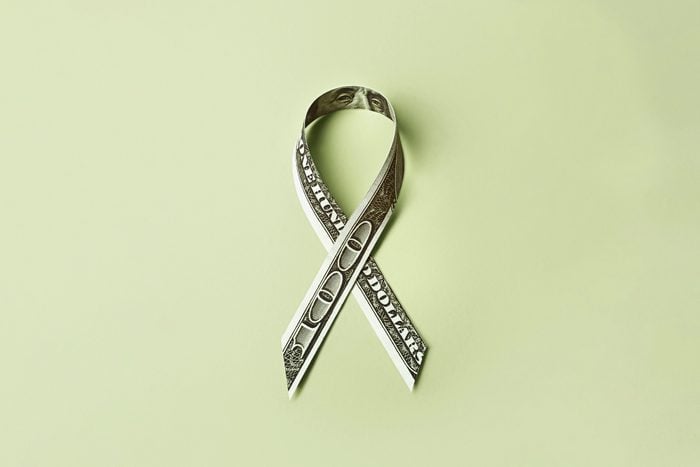
Charity scam
“Some of the most unfortunate frauds occur when the fraudsters take advantage of our kindness and impersonate charities,” says LaScala. “It is very simple to set up a would-be ‘charitable’ event, float it out onto a social platform and pull people’s heartstrings.” Fraudsters have even stooped so low as to run a “false charity” alongside a traumatic tragedy like a category-4 hurricane, a horrific school shooting or a fallen first responder. It’s natural to want to help people in these circumstances, which is why they make for fertile ground for fraudsters, LaScala says.
These perpetrators often use sites such as GoFundMe, Meta and PayPal. As these sites are wising up to fraudulent practices, scammers are turning to smaller and less well-known platforms.
How to avoid it
- Only donate to GoFundMe pages of people you know personally.
- If you’re donating to an organization, make sure it’s legit. Stick with organizations that are well known and have been around for at least a few years.
- Think before you donate. Ask yourself, Is this the best organization to help this cause?
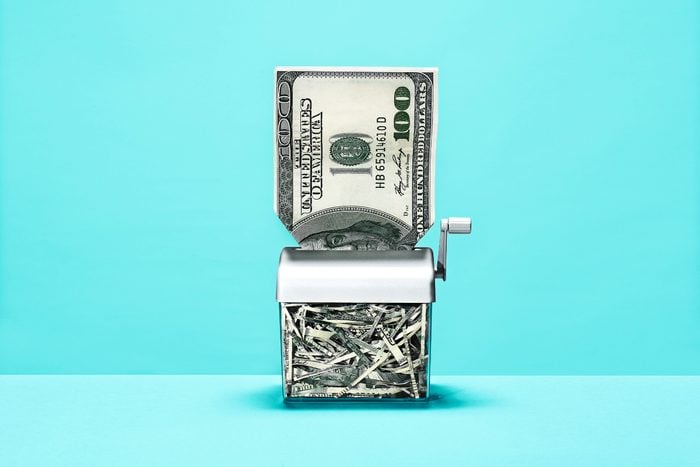
Employment scam
The “dream jobs” variation looks a lot less suspicious to victims because they usually don’t ask for any money upfront, according to LaScala. However, when the fraudster presents you with your dream job offer they will collect “onboarding information” for your new imaginary employer and require you to provide personal information on tax forms and direct deposit authorization forms for your “salary,” among other things.
From there, they’ve racked up all the info they need to steal your identity and tap out your bank account.
How to avoid it
- The next time you receive an email, letter or phone call with a “pay-to-play” recruiter or a “dream job” offering, think twice, says LaScala.
- If a job sounds too good to be true, it probably is.
- Don’t pay to find jobs. These people don’t offer anything helpful, and there are plenty of free services to help.
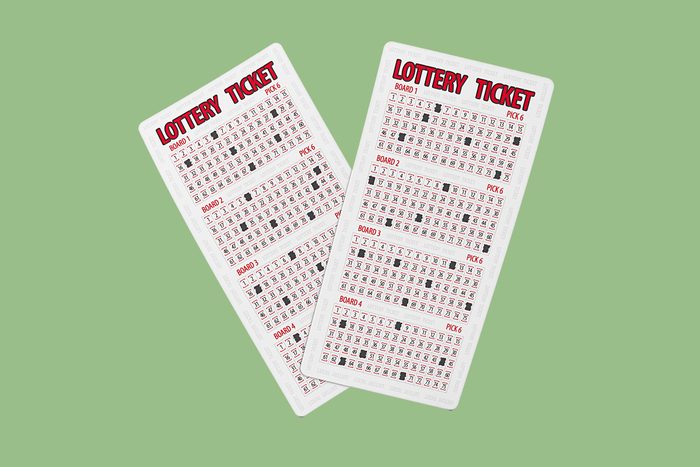
Lottery and award scam
Lottery and award scams come in different forms. Some send the target a message stating that you won a prize and all that’s needed is a shipping fee to receive it. Other scams ask you for your bank account information so that the money can be deposited in your account when all the scammers really want to do is take money out of your account.
How to avoid it
- Never pay a fee. Legitimate lotteries and companies with contests won’t charge a fee.
- If you don’t remember entering a contest, you probably didn’t win it. Research the contest before you reply.
- If the person claims to be from the Federal Sweepstakes Board, remember, there’s no such thing. The government doesn’t oversee sweepstakes.
- Ask the caller to tell you what your winning lottery ticket numbers are. If you don’t have a ticket with those numbers, it’s a scam.
How to avoid bank scams in general
No matter the type of bank scam, there are several ways to identify scammers and avoid them:
- Never give out your bank account info.
- Check your bank account regularly for suspicious transactions.
- Never give out your social security number.
- Avoid checks, especially from people you don’t know. Take cash payments or payments through reliable cash apps.
- Don’t click links in an email or text. Instead, go to the website directly.
Source:
- Salvatore LaScala, partner and head of global financial crimes, fraud, investigations and compliance at Guidehouse
